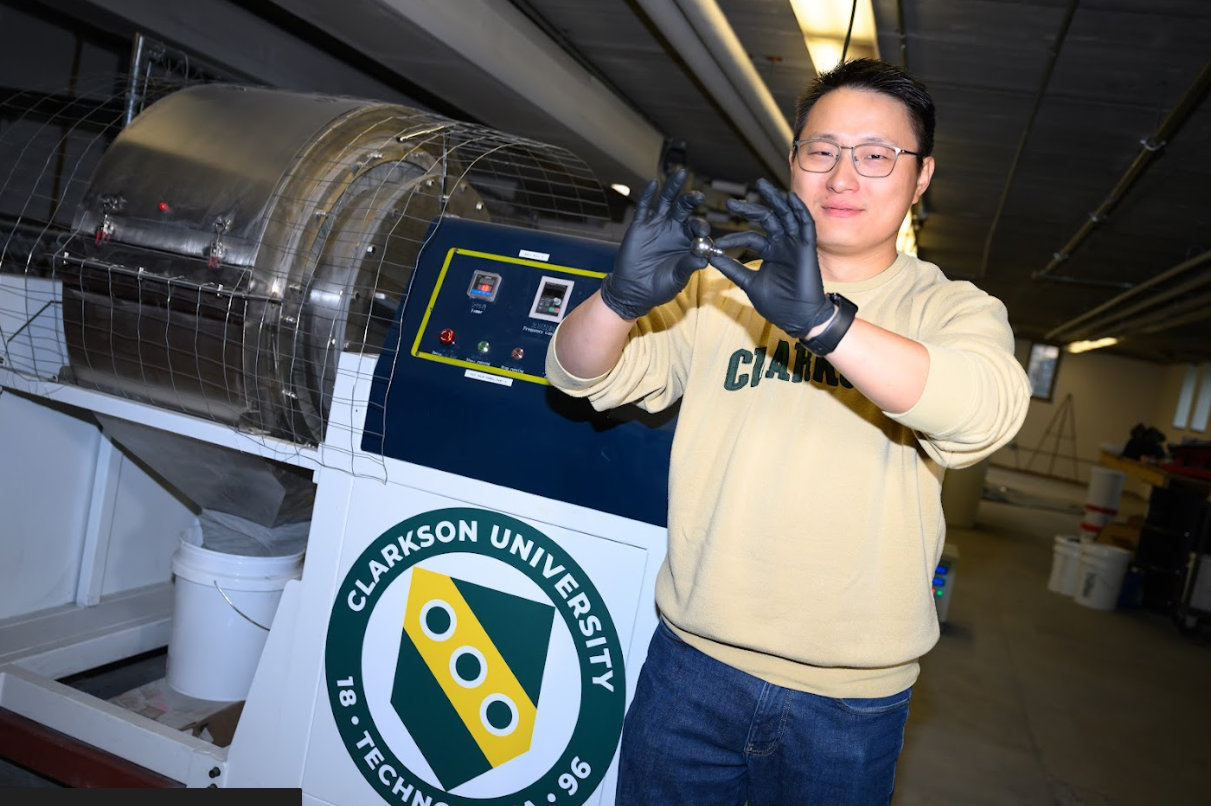Clarkson Researchers Find Simple Way to Destroy PFAS on Activated Carbon
Researchers at Clarkson University have discovered a new way to destroy “forever chemicals,” known as PFAS, using only stainless steel ball milling equipment. The method does not need added chemicals, heat, or solvents.

PFAS, or per- and polyfluoroalkyl substances, are a group of man-made chemicals used in products like nonstick pans, firefighting foam and water-resistant clothing. They are called “forever chemicals” because they do not break down easily in the environment and can build up in people, animals and water supplies.
The study, published in Environmental Science & Technology Letters, demonstrates that PFAS adsorbed on granular activated carbon can be completely destroyed by milling the material in a stainless steel ball mill.
“Granular activated carbon is widely used to remove PFAS from water,” said Yang Yang, an associate professor of civil and environmental engineering at Clarkson University. “But dealing with used carbon filled with PFAS has become a big problem. Our new process offers a clean and simple way to get rid of these chemicals at room temperature.”
Graduate students Jinyuan Zhu, Xiaotian Xu, and Nanyang Yang worked on the project with Yang. The team found that the collision of steel balls during the milling process generates triboelectrons, which facilitate the breakdown of PFAS through reactions with carbon.
The method worked on many types of PFAS found in both lab-made and real-world carbon samples. After treatment, no PFAS release was detected when the samples were tested under conditions similar to a landfill. This suggests the treated carbon may now be safe for disposal, which has been a long-standing challenge.
The project was supported by the National Science Foundation through a CAREER Award. Additional help came from Professor Alan Rossner, Dr. Sujan Fernando and Professor Thomas Holsen. The Center for Air & Aquatic Resources Engineering & Sciences provided testing support.
The full study, “Additive-Free Ball Milling in Stainless Steel Mills Enables Destruction of PFAS on Granular Activated Carbon,” is available open access through the American Chemical Society.
